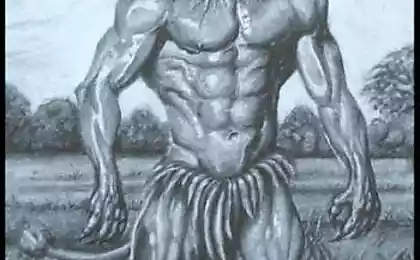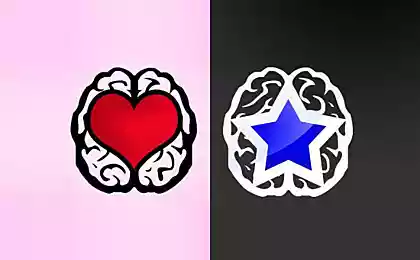475
10 facts about love

1. Love is like a * to Ain. If you do tomography of the brain in love with a person, you will notice one interesting detail: it will be very WHO * uzhdeny two zones, responsible for the so-called reward system. Scientists attribute this to the influence of high doses of dopamine - a substance that is usually caused by a feeling of pleasure. It is curious that so hard these areas of the brain react only to * Ayin.
2. Love as a way to survive. In the animals that form long-term pair, there are three stages in the relationship: the desire, passion, affection. Desire - this is not aimed at someone lo * sualny drive (zoologists call these words the state, which are based on basic needs: satisfaction of hunger, thirst and desire ovogo *). Passion - a fixation on a certain subject. Affection - a strong link, designed for long-term breeding program. Scientists are convinced that romantic love in humans - is a modified form of hobby animals. She appeared in our ancestors as a way of survival. In other words, love helps save effort not to throw, and to seek a partner for the purpose of procreation.
3. Love lasts from 1, 5 to 3 years. There is a biological sense: a guaranteed period in the first part of his father, the most difficult months of the life of the mother and child from our ancestors. In the presence of obstacles, such as the non-reciprocity, separation, a strong discrepancy in the timetables - love can last much longer.
4. Love is blind. The pictures which BG sent to the German researcher Andreas Bartel, shows that the area is usually active in the brain nevlyublennogo man the lovers sleep. This zone of negative emotions and rational decisions.
5. Where does depression. The man, unhappy in love, passes through two stages. At first, the level of dopamine is increased even more. The consequence of such an overdose is furious and even more heightened sense of love. But sooner or later there comes a second phase. Dopamine falls below the average, which causes depression.
6. Love - a relationship. Once on the effects of love is like a * to Ayin, scientists recommend to treat unrequited love as well as folk * otic relationship. You need to remove incentives and reminders - to throw out all the photos, do not call and do something completely new. Full restart.
7. Love can be treated with medications. Like the maniacs who do not control their actions, the lovers in the blood occur serious chemical changes. They have greatly reduced serotonin, an important hormone. Scientists blame the already mentioned dopamine: natural bunks * Otik, pushing us to the madness, which disables the control system. Statistics of crimes of love is that in America, talking seriously about its treatment pills.
8. Serotonin kills love. If you give a mouse a large dose of serotonin, she rejects his regular partner and begin to mate with just anyone. Explains: serotonin, dopamine reduces, and at the same time - the degree of love (but do not drive). It is important to remember that the level of serotonin is increased by the action of antidepressants.
9. Novelty saving love. Arriving in a foreign country, being in an unfamiliar hotel, many couples are again capable of madness. In response to any novelty in the brain in high concentrations again released dopamine, and it can short-circuit the old circuits, e.g., the same drive love. In general, American psychologists for many years routinely advise all couples to organize once a week evening date. But you can not go all the time in the same restaurant. We must look for novelty.
10. Men like eyes. Men between love becomes the active area of the cerebral cortex responsible for vision. So no wonder they say that men love with their eyes. Women active area associated with memory: an instinct behavior of the partner stores in a few weeks, and then analyze the information to properly weigh the pros and cons. As a result, women are much better to remember all the details of the first phase of the novel.
Source: www.funlink.ru
via factroom.ru
There are kinds of ice cream flavored with wasabi, lobster, horseradish and bovine tongue
Englishman David Harding suffered a painful dependence on sausages
























